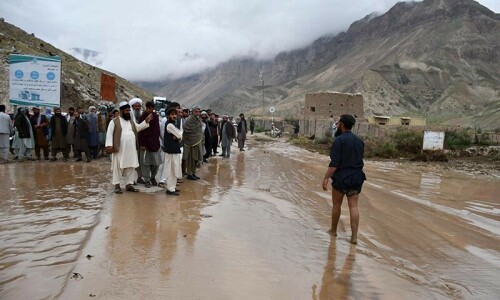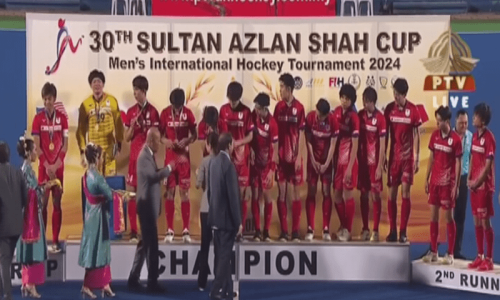WASHINGTON: Beijing has very cautiously supported Russia’s annexation of the Crimean peninsula from Ukraine. Some have compared Russia’s move to Adolf Hitler’s 1938 annexation of Sudetenland — a part of pre-war Czechoslovakia — via plebiscite, as well as to Hitler’s annexation of Austria that same year via “Anschluss”, or a “union”, one also consecrated by (biased) ballot. Russian President Vladimir Putin, for his part, has reportedly likened the Crimean referendum to Kosovo, which declared its independence from Serbia in February 2008.
Yet some Chinese are keeping the discussion to their own history — specifically, to that time a Soviet-backed referendum cost China more than 600,000 square miles of what it considered its own territory. A map of China, with the independent country of Mongolia on China’s northern border highlighted in red, has been retweeted more than 15,000 times since it was first posted on China’s massive, Twitter-like Weibo platform on March 16. A satirist who goes by the online moniker Cui Chenghao posted the map to his two million-plus followers, captioned with the charge: “Crimea has broken away from Ukraine through a referendum, and there are still some among you who applaud this? Or don’t you know? In October 1945, the Soviet Union also encouraged northern Mongolia to hold a referendum, and with less than 50,000 voting participants, ripped away 15 per cent of China’s sovereign territory.” (China exercised de facto control over Mongolia until the fall of the Qing Dynasty in 1911; it soon after fell under Russia’s sway, and became independent only after the collapse of the Soviet Union.)
Cui’s charge resonated widely, garnering more than 9,000 comments. Some questioned China’s current partnership with Russia, which is how the two sides currently characterise their relationship, one that has included joint naval exercises and frequent meetings between top leaders. One commenter wrote, “Russia is the country who stands to gain the most from an invasion of China, yet Chinese people call this thief ‘father.’” Another user wrote, “Return Mongolia to us, and then we’ll support the Crimean referendum.” And, referring to China’s volatile western region of Xinjiang that has a very small number of ethnic Russians, one user added, “The Soviet Union once supported independence for Xinjiang, so go ahead, applaud.”
But beneath the anger toward Russia runs a deeper acknowledgement of realpolitik. One commenter replied, “Outer Mongolia in 1945, Kosovo after 1950, Crimea in 2014. The relationship between these three is their economies and militaries were backward, so they got trampled on. There is no such thing as justice or democracy,” the user concluded, “only naked interest.” Eschewing any discussion of legal processes, another user angrily demanded, “When will the Chinese government be able to get Mongolia back?”
While governments may continue to debate the Crimean referendum for months or even years to come, the takeaway for China’s populace may be much simpler: grow stronger.
—By arrangement with Tea Leaf Nation-The Washington Post












































